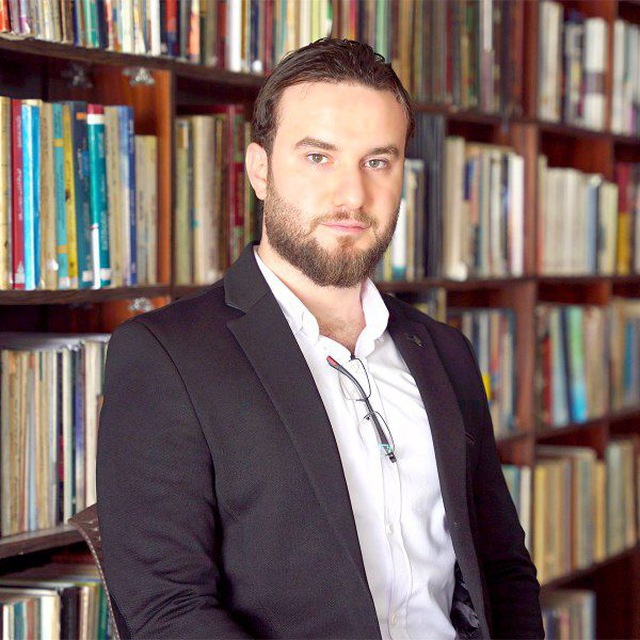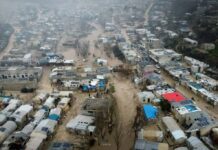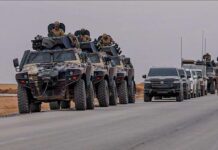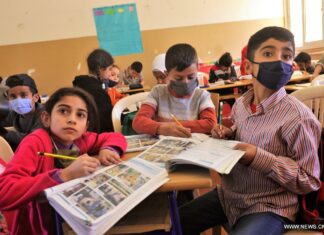
By: Motaz Nasser
Turkey and the Syrian Regime: Alliance Hostility then What Next? follows part one and is the second and final part in a series exploring the complex relationships between Turkey, the Assad regime, the Syrian Revolution, and the convoluted network of players in the region such as Russia, Iran, the US, and PKK. Written for L24 by guest author, Syrian journalist, and political analyst Motaz Nasser.
______________________________
Turkey’s Political Upheavals
In the Summer of 2016, a coup attempt in Turkey turned things upside down internally and externally. The aftermath saw the ruling Justice and Development Party (AKP) form an alliance with one of its fiercest opponents, the Nationalist Movement Party (MHP), to form the “People’s Alliance,” which later contributed to Turkey’s transformation into a presidential system.
Turkey began a rapprochement with Russia, following the failed coup – which Turkey accused the Emirates and Saudi Arabia (and the US) of supporting. The time was fraught with tension, discord with the US, and relations with Gulf states and Saudi Arabia amidst the killing of Khashoggi and the siege of Qatar. Turkey was also involved in military operations against terrorist organizations in Syria – the PKK and ISIS – after they had reached the Turkish border, posing an imminent threat to Turkey’s national security.
All these variables harmed the Turkish economy and disrupted domestic politics, with parties using the “Syrian refugee card” as an opportunity for political maneuvering and an issue used to blame and demonize Syrians before Turkish citizens. Thus, beginning the smear campaigns and racist incidents against Syrian refugees.
Northern Syria: Simmering Under Pressure
One of the conditions the nationalists set for AKP to accept a political alliance with them was that they take over the management of the interior Syrian file. Figures affiliated with the Turkish nationalist movements began to manage the northern Syria file with a security mentality; there was corruption, recklessness, and a lack of cohesive strategy.

Syrian anger began to gather and increase, and many rational voices came out warning of the coming explosion, but the Turkish administration refused to believe it, continuing with policies that Syrians in the north viewed as provocative, racist, and directly in the interest of the Assad regime.
Cavusoglu: Playing with Fire
The Syrians understand the Turkish mismanagement in the north, except that it was intentional, with the aim of forcing them to accept normalization with the regime, through the Turkish administration creating a reality in northern Syria that is the worst possible scenario for the Syrians. Thus, the option of normalization with the regime becomes preferable to the reality experienced under the smothering Turkish administration.
The continuation of systemic racist oppression against them in Turkey was realized through the People’s Alliance of the AKP and MHP. The Eurasian movement was managing security in northern Syria, they saw rapprochement with Russia and China, allies of Assad, as strategically sound. It was in this climate, late 2022, that former Turkish Foreign Minister Mevlut Cavusoglu spoke about rapprochement between the opposition and Assad – igniting the spark in the tense north, and confirming the previous fears of the Syrians.
Erdogan Pleads and Kayseri Explodes
Recently, we witnessed frantic pleas from Erdogan to Assad to meet and solve the existing problems. This came amidst a wave of violent protests in the northern countryside of Aleppo, which exploded following a night of fear and terror spent by Syrian refugees in Kayseri – due to the attacks of racists.
These events, along with Erdogan’s provocative statements to the Syrians, the continued forced deportation of refugees, their killing at the border, and their assault by the Turkish gendarme, all detonated the bomb of accumulated anger, that the Syrians in the countryside of Aleppo called the “July 1 Uprising.”

Turkish Motives
Foremost of Turkish concerns in Syria is the expansion of the so-called Syrian Democratic Forces (SDF), which is a local cover for the Kurdistan Workers’ Party (PKK), as it has come to control a large and important area in northeastern Syria, with US support. Turkey hopes that rapprochement with Assad, after its alliance with Russia, will be an important factor in aborting the ambition of a statelet helmed by the Syrian PKK.
On the other hand, the issue of Syrian refugees has become a focus of political tension in Turkey, which the government wants to resolve in any way, even by normalizing relations with Assad. Especially given the Turkish opposition’s prominence on this issue.

Compounding issues is Turkey’s deteriorating economic situation, which is partly due to the interruption of the route of Turkish goods to the areas controlled by the regime, to Jordan and the Gulf via Syrian roads. Turkey hopes normalizing relations with the regime may stimulate its faltering trade.
Turkey also perceives normalization as a step towards rapprochement with the Arab states preceding it on the path of normalization, and a means of improving strategic links with Russia, while curbing the expansion of Iran and its sectarian militias near Turkey’s southern borders. Pressuring the US regarding the PKK file, through normalization, and gaining “legitimacy” of its military presence in northern Syria also serves Turkey’s long-term interests, while embarrassing the US.
Desperation and Disinterest
Assad’s regime dealt intelligently with what many considered to be a display of vulgar political desperation by Turkish pleas for normalization. At first, Bashar ignored Erdogan in a deliberate and exaggerated manner, extorting more pleas from him bordering on begging. Increasing the likelihood of extracting more benefits, and provoking the Turkish opposition to make statements that are more in line with full normalization with Assad. This will necessarily widen the gap between the Turkish political currents themselves, and then between the Turkish government on the one hand and the Syrian opposition on the other.
After a long silence and bitter disregard, Assad’s Foreign Ministry issued a statement in which it stipulated that normalizing relations would require them to return to what they were before 2011. Assad later mentioned this, saying in a press interview: “He is ready to meet with Erdogan if that serves his country’s interests, but he saw that the problem is not in the meeting itself, but in its content.” This is a response that appears to be flexible in accepting the idea, but in essence, it is an adherence to an embarrassing position for Turkey, as Assad’s desire for a complete Turkish withdrawal from northern Syria is his chief condition for normalization.
A Caged Lion
In light of this evasion, we must remember that Assad’s decision is subject to two conflicting partners, the first is Russia, which wants a quick solution in Syria that preserves its interests and shows its political weight in dismantling chronic dilemmas, unlike the American presence which always ignites and fuels conflicts.
The second partner is Iran, which sees Syria as a strategic base, through which it threatens Jordan, blackmails Israel and besieges Iraq to the west and Turkey to the south. Iran wants Syria as an artery feeding Hezbollah in Lebanon, and exporting ideology, drugs, and weapons to the Gulf and Europe. Iran fears that Turkish-Assad normalization weakens its influence and does not want the return of Sunni Arab Syrian refugees after it displaced them based on a sectarian plan of demographic change.
Assad also has a sectarian incubator, fed with propaganda demonizing Turkey over the years that has lost many of its sons at the hands of the Turkish army, as happened, for example, in the Spring Shield battles in Idlib in 2020. This incubator, with Iranian backing, may be a strong obstacle to normalization.
The Syrian Opposition a Sacrifice Waiting for Slaughter
The Syrian opposition finally felt the magnitude of its own mistakes, when it cut all the ropes off itself, except for one rope that Turkey strangles it with whenever it wants! When it handed Turkey all its cards, starting with the fall of Aleppo, passing through Sochi and Astana, and ending with its immersion in absurd internal and external battles that only achieved the sectarian interests of some Turkish political movements, at the expense of the Syrian opposition.
According to Syrians, Turkey’s rapprochement with the Syrian regime will come at the expense of sacrificing the Syrian revolution. Observers believe that the forces of the Syrian revolution on the ground must overcome the dependence of the so-called “political opposition” and its tools, and sit at a single national coordination table, which will produce a military and security operations room that includes all of northwest Syria.

The Future of Normalization?
Turkish normalization with the Syrian regime faces difficult obstacles, the most important of which is the will of the US, especially if a Republican administration, stricter on the Syrian regime and Iran, comes to power. The reaction of the Syrian revolution’s audience to normalization took a sharp and shocking path for the Turks. Met with disregard and evasion from the Syrian regime, and internal Turkish challenges, most notably the economy and political polarization. And the example of Jordan’s Assad normalization experience, which turned into a nightmare where Iranian militias, drugs, weapons, and propaganda, were like an ever-present ghoul.
Despite such challenges, I think that Turkey is taking normalization with the regime as a strategic option, and will walk alongside Russia on this path to the end, because it has reached a high stage of internal and external tension, and sees normalization as a lifeline. Especially in light of the operations, it is waging against the PKK in northern Iraq, alongside the Iraqi and Kurdistan Regional Governments, which may play a role in mediating an upcoming meeting between Erdogan and Assad.
Normalization will not happen overnight, likely taking a few years, between breaking down barriers, restoring confidence measures, agreeing on a roadmap to implement these steps, and their timetable. With each stage, the specter of failure will be present, and the most important question is what will the revolutionaries in northwestern Syria do? Will they waste time with internal conflicts and exchanging blame, or will they use it to rebuild their ranks and impose a new reality on the ground?








